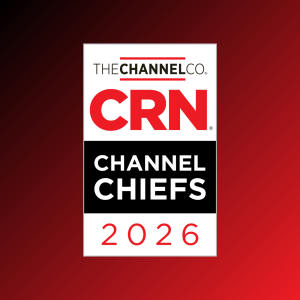
In the Forbes Tech Council’s recent article, “The Future of MSPs in 2025: Predictions and Trends,” one theme jumped out at me immediately: the increasing need for consolidation amid mounting IT complexity. This isn’t just a passing trend, it’s a signal of what’s fundamentally changing in how businesses operate and how they expect technology partners to deliver.
At Xcelocloud, we’ve built our philosophy around that very shift.
For years, IT environments have evolved from single-stack ecosystems into sprawling, hybrid, multi-cloud, and multi-vendor realities. Most organizations today are managing tens—if not hundreds—of technologies across different geographies, business units, and security frameworks. And yet, the way most support services are delivered hasn’t evolved at the same pace. Instead, companies continue to juggle frustrating, siloed vendor contracts, disparate support processes, and inconsistent customer experiences.
It’s no wonder IT leaders feel overwhelmed.
The solution isn’t to add more tools, more vendors, or more layers—it’s to consolidate and simplify. And that’s precisely where we, and hundreds of customers, believe the future of IT support is headed.
Multi-Vendor Complexity Is the New Norm
Complexity isn’t the enemy. It’s the inevitable byproduct of growth, modernization, and innovation. However, when left unmanaged, it becomes a significant drain on productivity, resilience, and even security.
As businesses invest in more SaaS tools, cloud services, and edge technologies, the support model must adapt. Organizations can’t afford to open a separate support case for every vendor. They need integrated visibility, consistent SLAs, and a unified experience, without sacrificing access to high-level expertise.
At Xcelocloud, we saw this early. That’s why we didn’t set out to be just another managed service provider. We built a model that thrives in multi-vendor environments.
Consolidation Isn’t Optional—It’s Strategic
When IT support is fragmented, the cost is high—not just financially, but in lost time, inefficiency, and user frustration. We believe the MSPs of the future will be defined by their ability to consolidate not just technologies, but support experiences.
Consolidation is about:
- Efficiency: One program, one platform, one contract across multiple technologies
- Clarity: Clear ownership and accountability, no finger-pointing between vendors
- Security: A unified posture across your IT estate, not a patchwork of disconnected tools
- Scalability: A support model that grows with your environment, without linear cost increases
Our multi-vendor support service (MVSS) was purpose-built to deliver on this philosophy. And XceloHub, our proprietary orchestration platform, brings it to life.
Purpose-Built for the Future of Support
While some MSPs are retrofitting traditional models to handle modern complexity, we started with a blank slate. Our MVSS framework was designed from the ground up to support today’s and tomorrow’s multi-vendor environments.
We don’t just provide reactive engineering. We offer:
- Advanced engineering across 20+ technologies
- Global service desk coverage for hybrid workforces
- Monitoring, patching, and remediation across systems
- Strategic consulting and transformation services
All unified in one platform, one team, and one experience. That’s how we help customers shift from firefighting to futureproofing.
XceloHub powers it all, offering real-time visibility into incidents, SLAs, assets, and analytics. It’s a command center for modern support operations, providing customers with the transparency and control they’ve been lacking in traditional MSP engagements.
Partner-First, Brand-Forward
But the real differentiator is how we go to market.
We’ve always believed that the future of IT services is not just consolidated, it’s collaborative. That’s why our model is built around white-label flexibility. We deliver the services, the engineering, the tooling, but our partners own the relationship, the brand, and the business outcome.
Whether it’s a global distributor or a regional VAR, we empower partners to scale their service offerings instantly without needing to build from scratch. They can extend their portfolio, serve more customers, and consolidate service vendors—all while maintaining complete brand control.
This is where consolidation meets customization—and it’s a win-win for everyone.
Enabling Business, Not Just Infrastructure
Ultimately, our goal isn’t just to simplify support. It’s to enable business.
We know that IT teams are being asked to do more with less. They’re under pressure to drive innovation, support hybrid work, ensure security, and deliver exceptional user experiences. All while managing an increasingly complex technology estate.
By consolidating support for multiple vendors, we help organizations refocus their IT talent on what matters: growth, strategy, transformation, not ticket management.
And we help partners grow revenue while reducing operational drag.
The MSP of Tomorrow Starts Today
The Forbes article rightly points out that the MSP landscape is changing fast. Clients are demanding more automation, broader expertise, faster response, and more strategic alignment.
We agree. But we’d argue that the change is already here.
At Xcelocloud, we’ve spent years preparing for this shift. Not by offering more of the same, but by building something new. A model that makes multi-vendor complexity manageable. A platform that brings clarity to chaos. And a partner framework that empowers our customers and resellers. Hundreds of end-user customers have already validated that the model works exceedingly well.
Consolidation isn’t a buzzword, it’s the blueprint. And we’re proud to be leading the way.

Mike Champion
Mike is the Founder and CEO of Xcelocloud. Since launching the company in 2017, he has led it to become a trusted partner to Fortune 1000 clients, backed by a proprietary platform and recognized as a disruptor in the managed services space. His leadership has attracted significant investment and driven rapid scale. Mike’s background spans enterprise sales, executive leadership, and professional sports, bringing a unique blend of strategic discipline and operational rigor. He’s known for building strong teams, fostering a culture of innovation, and challenging legacy IT service models with bold, client-focused solutions.




